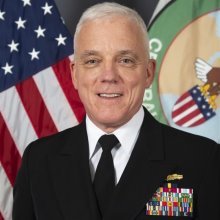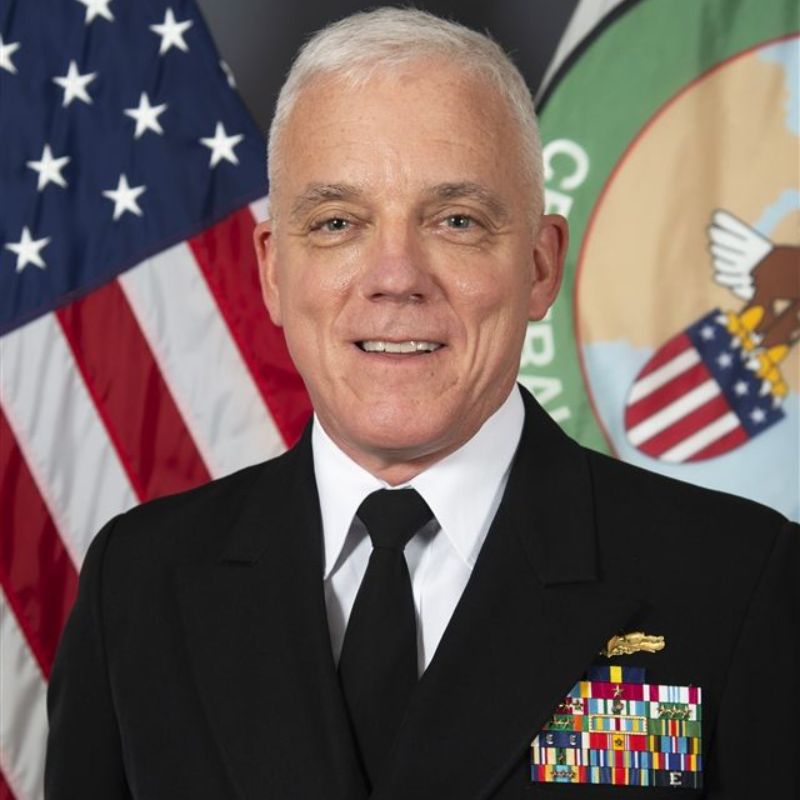
On Tuesday, Jan. 31, Vice Admiral James Malloy ’81 (Ret.) returned to St. John’s to speak with students in the Cadet Corps Leadership Program.
After more than 36 years of service, Malloy retired from the U.S. Navy in October 2022 and last served as the Deputy Commander, United States Central Command. Prior to that post, he served as the Commander of United States Naval Forces Central Command, U.S. 5th Fleet. A native of Silver Spring, Maryland, Malloy graduated from the U.S. Naval Academy in 1986. He holds master’s degrees in systems technology (command, control, and communications) from the Naval Post Graduate School, national security strategy from the National War College, and emergency and disaster management from Touro University.
Malloy began his presentation by sharing images of his experience in the Naval Academy and thought a distinguished career that took him around the world. He spent several years in the Middle East while serving with Central Command and met many military and political leaders.
Students learned about Malloy’s childhood dream of commanding his own ship, and his excitement about attending St. John’s where he would begin to that journey. He then recalled how his SJC commissioning Mass marked a turning point in his life—guiding him toward a higher calling—as the Brothers emphasized the importance of leadership through service. As a young officer in the Navy, he learned from his commanding officer the importance of knowing the standards of one’s job. “Always set your own standards higher than your superior’s,” he said. He also spoke about his personal experience at the Pentagon on 9/11, and the lessons he learned about courage that day.
Throughout his presentation and the question-and-answer session that followed, Malloy shared insight about the basics of successful servant leadership:
- A leader empowers and unleashes the potential of all of those in his charge. Selfless servant leadership requires daily reflection on how best to improve, how to remain humble, how to promote the success of your team, and the importance of taking personal responsibility for any shortcomings.
- If during your career as a leader you don’t experience adversity, then you might be a successful manager, but true leadership is borne in adversity and ambiguity. If you are never challenged, you will never get better. Challenge only makes you stronger.
- Face-to-face, honest communication is essential. You must be out and about speaking with all of those around, above, and under you. Everybody matters. No one person is more important than another—they simply have different jobs.
- We need to understand different perspectives and how we are seen in each other’s eyes. Changing perceptions of ourselves changes the behavior toward us.
- Set your aspirations high; don’t settle!










